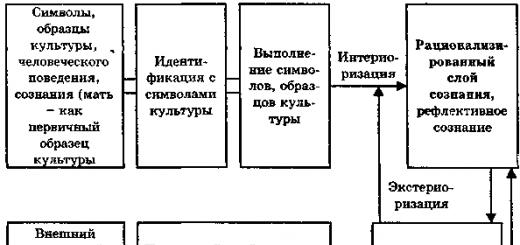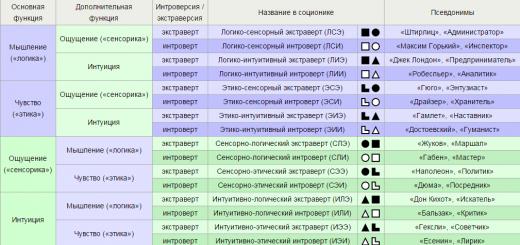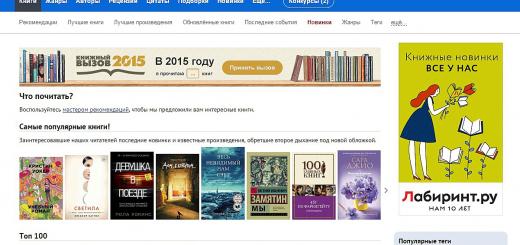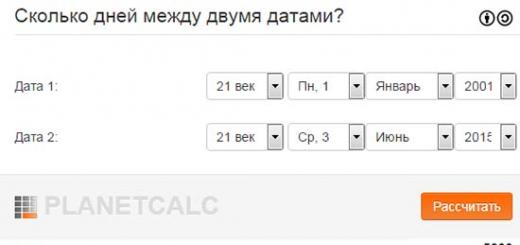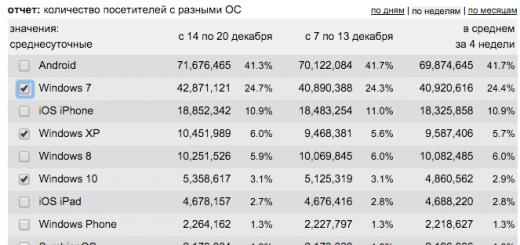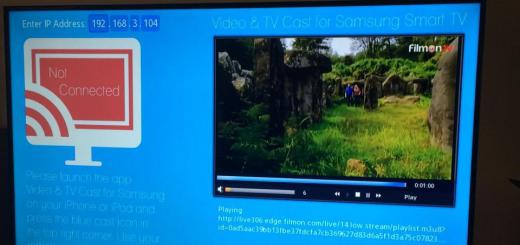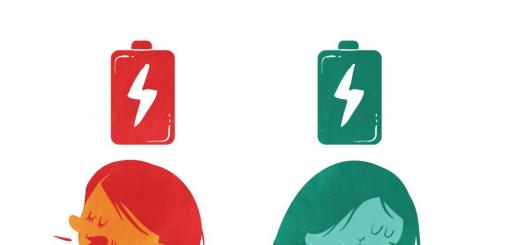Department of Education Administration
Sergiev - Posadsky municipal district of the Moscow region
Municipal general educational institution
« Khotkovskaya average comprehensive school № 5"
Abstract
"Lesson is a project
In Russian
in 1st grade
“The designation of the softness of consonant sounds in writing with vowels and b.
Health Day »
EMC "School 2100"
(the lesson is suitable for any teaching materials "
Prepared and conducted
teacher primary school
I qualification category
Sork Margarita Mikhailovna
Goals: Learning goal: generalize knowledge about the designation of the softness of consonants in writing vowels and soft sign; continue working with the ribbon of letters; Development goal: develop the ability to see “dangerous” places in words; repeat existing knowledge about the composition of the word; work on calligraphy educational goal: teach children to communicate and work in a group, empathize and help each other. Equipment: leaves, individual cards, A3 sheets, pictures, glue Location of desks in the classroomx x
x x
DURING THE CLASSES
Knowledge update
Today we have an unusual lesson. You will work not in notebooks, but on separate sheets of paper. And then, you will stick all your work on a large sheet. And what you get - we will see at the end of the lesson
Formulation of the topic of the lesson.
- Today the whole world celebrates an unusual holiday. And what - you will find out if you complete the first task. Now we will work with the ribbon of letters. I will give the task, and you take turns writing a letter on the card.
- If you do everything right, you get the word(
Appendix)
D
- A pair of letters C (Z) Pair of letters T (D) Look at the wheel and see the letter... (Oh) "Growling letter (P) What vowel sound do we hear when we pull "Yo" (O) for a long time A pair of letters F (V) A letter that does not have a sound and helps to become a consonant
- Iotated letter, syllable and word (I)
- What holiday is today? ( Health Day).
Glue your holiday name on top of the paper for a headline. Why is it so important to be healthy? ( To be strong, not to get sick)
Consolidation of the passed
- There are many proverbs about health in Russia. Let's get to know them
- Let's read what we got (each team reads one proverb, explains its meaning)
- Well done. Now work together. Guess the words
Horizontally:
- Plant, vegetable. Salad, cabbage soup, cabbage rolls are prepared from it. Its leaves are applied to the sore spot to draw out the pain (cabbage) It grows vegetables (garden)
Vertically:
- Running against time (cross)
- healthy drink white color which is obtained from the animal. It strengthens the bones. Many products are made from it (milk) Forest or garden berries. They are useful to use with tea for colds. These berries are loved by the bear (raspberry)
- Let's check what you got. Put stress in these words, underline unstressed vowels Well, we continue to work with you further. See what funny emoticons you have. What did they prepare for us?
- Doctors came to visit us. But unusual, but fabulous: Aibolit and Medunitsa. What stories do they come from? Who is the author of these stories?
- You need to help these heroes. You have cards with words that have the same root as the names of doctors. But a few words were superfluous. You must stick to our guests only those cards with the same root.
- Propaedeutics of new knowledge. Work on finding single-root words

pain
- (Each team is given one fairy tale character and a set of cards with words. The guys should glue around the hero only those words in which the root is PAIN or HONEY)
CHECK with claps(the teacher reads the answers, the guys clap if the words have the same root): Aibolit: pain, sick, hospital, ill, sickness
Lungwort: honey, mead, honey cake, honey, bear
Work on calligraphy.(Appendix 1)
Well then. We have one last task left. Now you will be real poets. You must beautifully rewrite the line of the poem from the card, and then all together compose a poem from your lines. But you need to write very, very beautifully. Whose work will be the most beautiful, neat? (The poem is cut into 8 lines. Each child rewrites one line from the printed text. They underline the words where all consonants are soft. Then they compose a poem and stick it on a sheet)
Strengthen your body
All my family knows
There must be a routine for the day.
You guys should know
Everyone needs more sleep.
Well, in the morning do not be lazy -
Get on the charger!
Summary of the lesson.
Well, our journey to the city of Health has come to an end. You have made beautiful newspapers. Let's look at them. You learned a lot of proverbs about health, poetry. And now we were invited to visit the fifth graders for their Health lesson. Always stay healthy and take care of yourself.
Literature:
- Poems about a healthy lifestyle:
Pictures:
Appendix













Everyone knows that the regime
Sun, air and water -
Long day until evening -
3health
3.
3.
3.
3.
Horizontally:
Plant, vegetable. Salad, cabbage soup, cabbage rolls are prepared from it. its leaves
It grows vegetables
Vertically:
Running against the clock
A healthy white drink that is obtained from an animal. He
Forest or garden berries. They are useful to use with tea for colds. Bear loves these berries
Horizontally:
applied to a sore spot to draw out the pain
2. Vegetables are grown in it
Vertically:
1. Running against the clock
strengthens bones. Many products are made from it.
Horizontally:
1. Plant, vegetable. Salad, cabbage soup, cabbage rolls are prepared from it. its leaves
applied to a sore spot to draw out the pain
2. Vegetables are grown in it
Vertically:
1. Running against the clock
3. A healthy white drink that is obtained from an animal. He
strengthens bones. Many products are made from it.
4. Forest or garden berries. They are useful to use with tea for colds. Bear loves these berries
Horizontally:
1. Plant, vegetable. Salad, cabbage soup, cabbage rolls are prepared from it. its leaves
applied to a sore spot to draw out the pain
2. Vegetables are grown in it
Vertically:
1. Running against the clock
3. A healthy white drink that is obtained from an animal. He
strengthens bones. Many products are made from it.
4. Forest or garden berries. They are useful to use with tea for colds. Bear loves these berries
pain
pain
Who doesn't clean their nails
D
h
D
h
D
h
h
Municipal educational institution
Dyakonovskaya secondary school
PROJECT
ENCYCLOPEDIA OF ONE
THE WORDS
Completed:
6th grade students
MOU Dyakonovskaya school
Supervisor:
teacher of Russian language and literature
Plotnikova Antonina Mikhailovna
Kh.Dyakonovsky 2nd
Project type : interdisciplinary (Russian language, literature, computer science, fine arts)
Planned result : presentation of children's creative research work(family books printed using a computer)
Objective of the project :
to instill love for the Russian language and interest in its study;
to teach to feel the word, to think over it, to look for the true meaning in the word.
Tasks :
Inspire students to create their own work with the help of etymological searches, verbal observations;
- to promote cohesion, unity of the family;
To form a reading culture and the ability to work independently with additional literature: reference and fiction;
- to develop the speech and creative abilities of students;
- to cultivate curiosity, sensitivity to the beauty and expressiveness of Russian speech;
- expand life knowledge, improve skills research activities;
- teach how to work with a computer at the stage of processing the collected material.
ISTAGE
Development of a project task.
Topic selection
Most of the guys find it difficult to choose a topic to fire up a project idea. The teacher explains to the children the usefulness and value of this kind of scientific activity for students and their parents parent meeting. Already at the first stage, we determine which socially significant product will be the result of the work of designers. Parents should know that the teacher is a scientific consultant who is called upon to lay down the algorithm of research activities. We immediately determine the timing of the project.
Today, for 288 million people, Russian is their native language. In terms of frequency of use, it is the fourth in the world and one of the working languages of the UN.
The native Russian language is the language of words: large and small, simple and complex, funny and sad, good and evil. Leo Tolstoy said: "The word is a great deed."
Many teenagers are passionate about action movies, science fiction, detective stories, which gives rise to aggressiveness, cruelty, rudeness, guys often speak slang. How can children protect themselves from cruelty and indifference?
It is very important to learn to enjoy the beauty of the spoken and written word, to feel its true meaning, to learn how to listen, speak, compose, and write correctly. The surest way to the word is enrichment vocabulary. For this purpose, the project "Encyclopedia of one word" was developed and implemented.
Explicit Problems modern society- lack of conscience, lack of live communication, including the lack of communication between parents and children.
As2008 is the year of the family, then we decided to involve our parents in our work.
Project partnersbecame parents, as well as a teacher and a librarian.
Children worked together with adults. After all, even Lev Vygodsky said: "In cooperation, under the guidance, with someone's help, a child can always do more and solve more difficult problems than on his own."
Highlighting subtopics in the project topic.
Each sixth grader chose one word to study:
Zemlyanskaya Lyuba - the wordJOY;
Kostomarov Alyosha - the wordROAD;
Lepilina Olya - the wordHUMAN;
Mikheev Ivan - the wordA HEART;
Samsonov Sergey - the wordMOTHER;
Selezneva Olya - the wordMOTHERLAND;
Semina Lyuba - the wordCONSCIENCE.
The teacher handed each student a route sheet (plan-scheme), which indicated the steps to achieve the goal, after which the guys began to work individually, although each helped his comrades if, during his search, he came across material for other proposed words.
ROUTE SHEET

BEFORE GOING INTO THE UNKNOWN

IISTAGE
PROJECT DEVELOPMENT
At this stage, the teacher advises, coordinates search activities.
Material preparation
Together with their parents, the children visited the village, city and school libraries, worked with additional literature: reference, fiction.
They worked with the teacher in the computer science room: they printed the collected materials. At first it was difficult, the work was slow, no one knew how to type and format texts. Go online to collect information material by the chosen word.
Children worked with explanatory, phraseological, etymological, word-building dictionaries, dictionaries of synonyms, antonyms and other types of dictionaries. Investigating, they found and recorded the history of the origin of the word, its structure and meaning, relative words, synonymous words, antonymous words, phraseological phrases with them. Young researchers observed how their word lives in Russian folklore (in proverbs, sayings, riddles, tongue twisters, parables, legends, fairy tales, songs), in the titles of works of literature, paintings by artists.
In addition, the guys had to prove themselves in speech creativity, since the word lives in their speech. Each of them composed his own poem, story or fairy tale.
And another type of activity is the life of the word in illustrations, drawings, puzzles.
IIISTAGE
PRESENTATION OF RESULTS
The guys studied the life of their words on the DICTIONARY website on the Internet, compared with the results of their findings when working with dictionaries. It was at this stage that the guys found completely new information for themselves, they discovered a whole new world in the direction they are interested in.
A new desire arose: to make a crossword puzzle with your own word. We corrected our achievements, ranked them, highlighted the main ones.
All the collected information was reflected in the books that the children designed with the help of their parents and teachers. We were also helped by subject teachers: a computer science teacher, a drawing teacher.


IVSTAGE
PROJECT IMPLEMENTATION
The teacher organizes a presentation of the project "One Word Encyclopedia" developed by the students.
Parents, teachers, students of the school were invited to the presentation. In the relaxed atmosphere of the native class, the designers had the opportunity to gain experience public speaking to test the depth of your knowledge. The guys talked about their contribution to the work, read out their messages-reports, shared their impressions, listened to critical remarks.
The guys prove the relevance of their own vision of the life of the chosen word, the consistency, completeness and depth of the analysis carried out in terms of the stated goals and objectives. At this stage, the skills of a constructive attitude to criticism, the ability to listen and hear, to lead a discussion are formed.

STAGE V
P  The project lasted six months. A lot of hard work has been done. With interest, the guys "digged" in dictionaries, composed, drew, got acquainted with reproductions of paintings. It was their first project that evoked a range of feelings: joy, pride, excitement, the desire to learn new things. Some guys did it with a "creak", but when the result became visible, everyone liked to be competent specialists in the field of creating projects.
The project lasted six months. A lot of hard work has been done. With interest, the guys "digged" in dictionaries, composed, drew, got acquainted with reproductions of paintings. It was their first project that evoked a range of feelings: joy, pride, excitement, the desire to learn new things. Some guys did it with a "creak", but when the result became visible, everyone liked to be competent specialists in the field of creating projects.
Rostov region Martynovsky district
Municipal budgetary educational institution
secondary school No. 3 sl. Bolshaya Orlovka
5th grade student
MBOU secondary school №3 sl B-Orlovka
Leader: Panchekhina
Inna Alexandrovna,
Russian language project "My name in the world of names"
MBOU secondary school №3 sl B-Orlovka
Head: Panchekhina Inna Alexandrovna,
teacher of Russian language and literature
Names, names, names
In our speech, they do not sound random.
How mysterious is this country
So the name is a mystery and a mystery.
S. Ya. Marshak (Slide 2)
1. Justification of the project theme(Slide 3)
Each person is given a name from birth. He does not choose him, others do it for him. But he needs to know the history of origin and the meaning of his name. It should also be of interest whether our character traits coincide with the meaning of our names, and whether the name chosen by parents for their child is always justified.
2.
Project Goals(Slide 4)
I want…
Learn what a name is and what is the history and origin of names;
Identify popular, rare and favorite names among students and teachers of our school;
Compare the names of children born in Russia and the names of teachers born in the USSR;
Find out what the names of my classmates mean and create a dictionary of their names;
Learn about the origin and meaning of my name and why I was called that;
Determine the traits of your character and make a conclusion about whether my name suits me or not.
3. Project objectives(Slide 5)
For this you need…
Get acquainted with the dictionaries of V.I.Dal and S.Ozhegov and study the definition of the name;
To study the history and meaning of the names of interest to me from various Internet sources;
Conduct a survey among classmates about the history of origin and the meaning of their names;
Review the lists of students and teachers in order to determine the frequency of the use of names;
Conduct a survey among students and teachers in order to find out their favorite female and male names;
To study information about the origin and meaning of my name, about my talismans and patrons, about famous people with the name Elizabeth;
Observe your actions and make a comparison with the information obtained;
Analyze and formalize the results obtained during the study;
Make a conclusion.
4. Project relevance(Slide 6)
In the Russian language lessons, we learn how to communicate correctly: choose the addressee depending on the speech situation. But how to address the interlocutor? We are constantly looking for an answer to this question.
Therefore, talking about our names as addresses in communication is quite natural.
The names of people are part of the history of peoples. They reflect the way of life, beliefs, fantasy and creativity of people. And every person should know the history of his people.
Therefore, the topic of my project is very relevant in our time.
5. Working with dictionaries(Slide 7)
Having visited the school library and got acquainted with the dictionaries of V.I. Dahl and S. Ozhegov, I learned that:
"A name is a word that is called, means an individual, a person"
The name is the word that we hear most often in our lives. The name has great power over the fate of a person. (According to the dictionary of V. I. Dahl)
The personal name of a person given at birth, often in general the personal name of a living being. (By explanatory dictionary S. Ozhegova)
6. What is a name?(Slide 8)
From Internet sources, I found out that "Names are words, but special."
There is not a single person who does not have a name. It happens that the person himself is long gone, but his name lives on.
In the section of the Russian language "Etymology" I read that proper names relating to people are called anthroponyms, and the science that studies them is anthroponymics (from the Greek anthropos - “man”, onuma - “name”).
7. Questioning(Slide 9)
What is the meaning of our names, why were we named that, who named them and after whom? In the course of the research, I decided to find out the history of the names of classmates, because some guys have the names of their grandparents, grandfathers and great-grandfathers, and some got a name because it is beautiful or means something to dad or mom.
I conducted a survey in the class, during which the following results were revealed:
1.40% of children in the class are named moms,
2.40% - named popes,
3.10% are called grandmothers,
4. 10% are called grandfathers;
5. 10% - named after a grandmother (girl);
6.20% - named after the great-grandmother (girl);
7. 10% - named after grandfather (boys);
How and why they were called that, what the name means, 70% of classmates did not know. Now they know, thanks to the survey I conducted. The result of this work was the “Glossary of names of grade 5b” compiled by me.
8. "Dictionary of names of grade 5b."
In the dictionary, I arranged the names of classmates in alphabetical order, indicated the ending in plural and gender (male or female), explained the meaning of the name, and also indicated all possible derivatives from each name and name day, if any.
What do the names of my classmates mean: (Slide 10)
Anastasia - from ancient Greek as "resurrected" ("returned to life");
Daria - from Persian "great fire";
Elena - from the Greek "chosen, bright, shining";
Elizabeth - from the Hebrew "conjuring God";
Tatyana - from the Greek "organizer";
Evelina - from the Hebrew "life force";
Eila - came from eyla, from the ancient Sabean dialect, into Turkish means "halo of light around the moon";
Elnara - from the Turkic "joy of the people";
Shamazad - from the Greek "wise".
What do the names of my classmates mean: (Slide 11)
Alexander - from the Greek "protector", "protective husband", "man";
Alishan - from the Arabic Alshan, which means "dignity";
Artem - from the Greek "intact, healthy";
Maxim - from the Latin word "maximus" - the greatest.
Novruz - from Persian "new day and daylight"; from the name of the Novruz Bayram holiday;
Ramadan - from Arabic "hot month"; a boy born in Ramadan;
Ruslan - from the Turkic "lion";
Emrah - from Turkish "faithful friend", "elder brother".
Photo of classmates.(Slide 12)
9. Working with lists of students and teachers of our school
From the school secretary, I took the List of students and the List teaching staff MBOU secondary school No. 3 sl. B-Orlovka for 2015-2016 academic year. From the first list, I learned that 491 students study at our school: 250 girls and 241 boys. I wrote down all the names in alphabetical order, counted how many girls and how many boys have a name for each letter of the alphabet. Next, I identified commonly and rarely used names for girls and boys.
Girls/Boys
A - 51/56
B - 0/8
B - 10/21
G - 10/1
D - 13/19
E - 11/0
F - 3/1
Z - 10/1
I - 5/19
K - 9/14
L - 19/1
M - 18/16
H - 14/9
O - 5/4
P - 0/9
R - 4/28
C - 32/14
T - 4/4
U - 1/1
X - 2/4
F - 7/0
W - 2/7
E - 15/9
Yu - 5/0
I am 0/1
From the second list of teachers, I learned that 52 teachers work in our school: 46 women and 6 men. I did the same with this list. Women/men
A - 0/1
B - 5/0
G - 1/0
D - 0/1
E - 4/0
I - 10/1
L - 4/0
M - 3/1
H - 9/2
O - 2/0
R - 1/0
C - 6/0
Yu - 1/0
I compared the names born in Russia and those born in the USSR.
Comparison:
(Slide 15)
Valentine -2/2
Victoria -2/2
Elena -2/4
Irina - 1/8
Inna -1/1
Larisa -2/1
Love -1/2
Marina-2/1
Maria - 7/1
Hope- 2/2
Natalia - 1/5
Olga - 2/2
Svetlana - 2/3
Sevda - 2/1
Julia - 3/1
Comparison:
born in Russia and born in the USSR(Slide 16)
Andrey - 3/1
Dmitry - 7/1
Igor - 1/1
Nicholas -2/2
10. Results:(Slide 17)
As we can see, girls and boys with a name starting with the letter A (51/56) study most of all in our school. With a name with the letters B, P, I there are no girls, and with a name with the letters E, F, Y there are no boys.
82 girls and 87 boys have rare unique names.
Most of all in our school Anastasy (11), Aleksandrov (9), Artyomov (9) and Vladislavov (9). The names Maxim (8), Dmitry (7), Maria (7), Leila (7), Ramazan (7), Alina (6), Anna (6), Arzu (6), Danil (6), Albina are also often found. (5), Daria (5), Diana (5), Elizabeth (5), Ilya (5), Kirill (5) and Ruslan (5).
Among the teachers, most of all have names beginning with the letter I (10), H (8), C (6) and B (5). Most of all, teachers with the name Irina (8), Natalia (5) + 1 Natalia, Elena (4) work in our school.
Among those born in Russia, names often found among those born in the USSR began to be rarely used, these are: Vera, Galina, Irina, Lyubov, Natalya, Svetlana, Tatyana, Nadezhda, Valery, Vasily, Konstantin, Pavel, Peter, Igor and others.
11. Poll(Slide 18)
I spent among students and teachers poll, in order to identify a favorite female and male name. Here's what came out of it:
For students For teachers
woman's name woman's name
Elizabeth(8) Ekaterina (2), Olga (2), Tatiana (2)
male name male name
Alexander (9) Andrey (2)
Result: my name Elizabeth won, gaining 8 votes, among male names, the name Alexander won, gaining 10 votes.
12. Everything about me and my name.
And here is actually me - Maznitsyna Elizaveta Viktorovna! (Slide 19)
And this is me and my parents, Viktor Maznitsyn and Nadezhda, who gave me this beautiful name Elizabeth. (Slide 20)
I assume that I was not called Elizabeth by chance, this name should suit me. (Slide 21)
History of choosing my name(Slide 22)
My father chose my name. His choice was between Valeria and Elizabeth. Dad settled on the name Elizabeth, since our family did not yet have such a name.
And that's what everyone calls me(Slide 23)
Diminutive forms of my name: Lizonka, Lizok, Lizaveta, Lizunchik, Lizochek, Liza, Lizunka, Liza, Lizavetka.
My famous namesakes
Poet (1887-1928) Elizaveta Vasilyeva
Elizaveta Bykova (1913-1989) chess player
Singer, soloist of the Mariinsky Theater (1845-1919) Elizaveta Lavrovskaya
Russian theater and film actress Elizaveta Boyarskaya
Elizaveta Tuktamysheva - figure skater
Elizaveta Andrienko - Russian swimmer
Elizaveta Chavdar - opera singer
Elizaveta Ivantsiv - singer Elka
Elisabeth of Bavaria - Empress of Austria
Elizabeth II - Queen of Great Britain
Elizaveta Petrovna - Empress
History of my name(Slide 29)
The name Elizabeth is of Hebrew origin and in translation literally means “my God is an oath”, “honoring God”, “conjuring God”.
Talismans and patrons of my name:
Patron named after Elizabeth the waxwing, fox;
Elizabeth's talisman stone is an amethyst;
The color of the name Elizabeth is lilac, orange;
Favorable plant - lilac, oleander;
The planet is Proserpina.
Description of my name(Slide 30, 31)
Positive features named after Elizabeth: curiosity, cheerful disposition, charm, mobility, striving to achieve a goal, active life position. Lisa usually grows up as a smart girl with a developed logic. She is very generous, diligent, hardworking. She always and in everything wants to be better than she is.
Negative traits of the name Elizabeth: sick pride, resentment, selfishness, reckless courage. Often commits rash and impulsive acts. This name tries to be the first and does not know how to lose. Elizabeth is often indifferent to the wishes and opinions of others. She is a capricious person, it is better not to anger her. Very categorical in judgments, favorite word- "No!" Too powerful and strives to create her own little kingdom.
Saints of Elizabeth:(Slide 32)
Elisabeth of Andrianopol - martyr,
Elizabeth of Constantinople - abbess,
Elizabeth the Righteous - Palestinian mother of St. John the Baptist,
Elisaveta Fedorovna Alapaevskaya - Reverend Martyr.
Name songs(Slide 33)
Aquarium "Elizabeth"
V. Vlasov "You are waiting, Lizaveta",
Wild honey "Slim Lisa",
F. Kirkorov "Lisa",
M.Krug "Red pockets",
A. Gubin "Lisa",
V. Chaika "Mona Lisa".
The result of the work(Slide 34)
In the world of names, my name has not been lost, it is popular and often used. I think that my parents called me Elizabeth not by chance, this name should suit me. Proving this, I:
I found out from my parents why they called me Elizabeth;
Found out who famous people bore or bears my name;
Learned the origin and meaning of my name;
I recognized the talismans and patrons of my name;
I observed my actions and determined personal
quality;
Compared her personal qualities with the received meanings of her name;
Made a conclusion.
13. And the conclusion is:(Slide 35)
I was named Elizabeth at birth, not knowing what I would become. But now I realized that my name suits me very well. I will treat my name with respect! And also, after doing all this work, I realized that in the future I would become a teacher of the Russian language and literature.
Thank you for your attention! (Slide 36)
DEVELOPMENT OF A LESSON-PROJECT
IN RUSSIAN LANGUAGE IN THE 1st CLASS
Subject: LESSON PROJECT
Karaeva Regina Alexandrovna
Goals:
Activity:
Equipment
During the classes.
Lesson motto:
(on the screen)
Where are the mistakes? Here is the question! Who will fix the transfer?
The purpose of our lesson:
2. Actualization of knowledge.
First task: (on screen)
3. Make a conclusion.
Second task:
3. Make a conclusion.
Third task:
2. Compare how the words for hyphenation were divided (equally or differently).
3. Make a conclusion.
Fourth task:
2. Compare how the words for hyphenation were divided (equally or differently).
3. Make a conclusion.
Fifth task:
2. Compare how the words for hyphenation were divided (equally or differently).
3. Make a conclusion.
Teacher: - What conclusions did you come to? (Students draw conclusions, explain how they transferred the words, put “+” in the margins if the task was done correctly, or “-” if it was wrong.)
Conclusions: (on screen)
1. You can transfer words from one line to another only by syllables: ma - ma, Ro - di - on, conscience.
2. A syllable from one letter cannot be left on a line or transferred to another: father, language, Ma-ria.
3. Localization of difficulties.
Turtle
Algorithm (on screen)
Did it;
I doubt;
Still need to practice
1 task: (on screen)
2) Check the answer
2 task: (on screen)
2) Check the answer
3 task: (on screen)
2) Check the answer
4 task: (on screen)
2) Check the answer
5 task: (on screen)
2) Check the answer
Karaeva Regina Alexandrovna,
23.10.20171031 112
Development content
Municipal budgetary educational institution
MO - Prigorodny district of the Republic North Ossetia Alania
DEVELOPMENT OF A LESSON-PROJECT
IN RUSSIAN LANGUAGE IN THE 1st CLASS
Subject: LESSON PROJECT
"DIVISION OF WORDS INTO syllables. TRANSFER OF WORDS"
Compiled by: primary school teacher
Karaeva Regina Aleksandrovna
Goals:
Activity: the formation of an algorithm for reflexive thinking, the ability to work with reference literature, the development of self-control skills, creativity, communication skills, the development of mutual assistance.
Equipment
Multimedia projector. Lesson presentation.
Cards for independent work.
Cards for testing knowledge of the topic (for independent work and work with tests).
Card with a table for introspection of the student's activities in the lesson.
During the classes.
1. Self-determination to activity.
Lesson motto:
Check it out buddy
Are you ready to start the lesson?
Everything is in place, everything is in order:
Book, pen and notebook?
(on the screen)
- Guys, in order to find out the topic and objectives of the lesson,
Look how Dunno endured the words.
 -
-
Where are the mistakes? Here is the question!
Who will fix the transfer?
That's right, today in the lesson we will repeat the spelling for transfer. Justify your answer.
The purpose of our lesson: repeat with the students the rules of word hyphenation, as well as the previously studied rules of word hyphenation.
2. Actualization of knowledge.
Repeating the rules of word hyphenation (independent work on cards):
First task: (on screen)
1. Separate the words for transfer: mother, motherland, conscience.
2. Compare how the words for hyphenation were divided (equally or differently).
3. Make a conclusion.
Second task:
1. Separate the words for transfer: father, excursion, Maria.
2. Compare how the words for hyphenation were divided (equally or differently).
3. Make a conclusion.
Third task:
1. Separate the words for transfer: dawn, coat, entrance.
2. Compare how the words for hyphenation were divided (equally or differently).
3. Make a conclusion.
Fourth task:
1. Separate the words for transfer: mystery, construction, troika.
2. Compare how the words for hyphenation were divided (equally or differently).
3. Make a conclusion.
Fifth task:
1. Separate the words for transfer: platform, million, ton.
2. Compare how the words for hyphenation were divided (equally or differently).
3. Make a conclusion.
Teacher: - What conclusions did you come to? (Students draw conclusions, explain how they transferred the words, put “+” in the margins if the task was done correctly, or “-” if it is wrong.)
Conclusions: (on screen)
1. You can transfer words from one line to another only by syllables: ma - ma, Ro - dina, so - news.
2. A syllable from one letter cannot be left on a line or transferred to another: father, language, Ma-ria.
3. You cannot transfer the letters b, b to another line: dawn - ka, finger, entrance - drive.
4. You can not transfer the letter Y to another line: tai-na, build-ka, troy-ka.
5. When transferring words with double consonants, one letter must be left on the line, and the other must be transferred: per-ron, million-lion, million-on, ton-on.
3. Localization of difficulties.
Group work. differentiated tasks.
To test yourself, work in groups.
1 group. Separate words for hyphenation. Find superfluous word. Explain why.
(an extra word hoarfrost, because you cannot leave one letter per line)
2 group. Separate words for hyphenation. Find the extra word. Explain why.
Turtle
(extra word eagle, because one letter cannot be left on a line)
3rd group. Find in the text words with ь and й in the middle of the word. Write out the words and separate them for hyphenation. Find the extra word. Explain why.
It's raining outside. So I can't go out today. I sit by the window and watch the rain. Small raindrops flow down the glass, merge with each other and trickle down onto the windowsill.
It is impossible, small, droplets, a stream.
(an extra word is not allowed, because this word has only 1 hyphenation option, and the rest of the words have several options)
4. Building a project to overcome difficulties.
Algorithm (on screen)
Divide the word into syllables (there are as many syllables as there are vowels in the word);
If the syllable consists of one vowel, then transfer cannot be done in this place;
If the word can be transferred, then let's see if there are b, b, y in the word, these letters cannot be torn off from the previous consonant;
Let's see if there is a double consonant, if there is, then we will leave one letter on the line, and transfer the other.
5. Generalization of difficulties in external speech.
What mistakes were made, how did you overcome these difficulties?
6. Independent work with self-testing against the standard.(Each student selects only those tasks from among the proposed ones in which he made mistakes, solves them, then performs a self-test according to the standard, compares his solution with the finished sample and fixes the result of his activity with icons.)
Did it;
I doubt;
Still need to practice
1 task: (on screen)
1) Separate the words for transfer: window, glow, valor, combine, workshop.
2) Check the answer
2 task: (on screen)
1) Separate the words for transfer: fire, anchor, Sofia, Romania, luck.
2) Check the answer
3 task: (on screen)
1) Separate the words for transfer: polka, ring, rise, big, far.
2) Check the answer
4 task: (on screen)
1) Separate the words for transfer: war, nut, balalaika, trolleybus, now.
2) Check the answer
5 task: (on screen)
1) Separate the words for transfer: apparatus, grammar, pool, autumn, buzz.
2) Check the answer
And who has not made a single mistake performs the exercise in the textbook
7. Inclusion in the knowledge system and repetition.
Divide the notebook into three parts, write one sentence in each column, you need to write strictly to the line, before writing a word, think about whether it is possible to make a transfer, if so, how (see algorithm).
1) The Russian language lesson has begun.
2) The teacher Inna Evgenievna dictates a group of vocabulary words to the class.
3) The guys write: autumn, young naturalists, buzzes, alley, story, Saturday.
8. Reflection of activity (the result of the lesson).
Students analyze where and why mistakes were made, how they were corrected, pronounce the methods of action that caused difficulties, evaluate their activities by filling out the table:
9. Homework- creative work
Write out 10 words from the dictionary with a double consonant. Additionally: mark the places of hyphenation in words with a pencil.
Development content

Hyphenation.
Karaeva Regina Aleksandrovna
primary school teacher
MBOU secondary school №1
with. October

Check it out buddy Are you ready to start the lesson? Everything is in place, everything is in order: Book, pen and notebook?


mother
motherland
conscience

father
excursion
Maria

dawn
coat
entrance

secret
construction
troika

platform
million
ton

ma - ma, Ro - dina - conscience.
2. A syllable from one letter cannot be left on a line or transferred to another:
father, tongue, Mary.
3. You can not transfer the letters b, b to another line:
dawn - ka, finger - then, drive - drive.
4. You can not transfer the letter Y to another line: tai - on, build - ka, troy - ka.
5. When transferring words with double consonants, one letter must be left on the line, and the other should be transferred:
lane - ron, mil - lion, milli - he, tone - on.

1 group
Ol-ga, Tay-na, Hoarfrost, May-ka, School-la
2 group
Eagle, Che-re-pa-ha, Perch-ki, So-ro-ka, Ring
3 group
Impossible, little lazy, ka-pel-ki,
ru-who-com.

1 group
Ol-ga, Tai-na, Frost , Mai-ka, School-la
2 group
Eagle , Che-re-pa-ha, Perch-ki, So-ro-ka, Ring
3 group
It is forbidden , little lazy, ka-pel-ki,
ru-who-com.

Algorithm
- divide the word into syllables (how many vowels in the word so many syllables);
- if the syllable consists of one vowel, then the transfer cannot be done in this place;
If the word can be transferred, then let's see if there are b, b, y in the word, these letters cannot be torn off from the previous consonant;
- let's see if there is a double consonant, if there is, then we will leave one letter on the line, and transfer the other.

1. Window, glow, valor, plant, workshop.
Ok - but, for - re - in, valor - flattery, com-bi-nat, masters-kai.
2. Fire, anchor, Sofia, Romania, good luck.
Fire, anchor, Sophia - Romania, good luck - cha.
3. Polka, ring, rise, large, far.
Pol - ka, ring - tso, rise - eat, big - shay, far - her.
4. War, nut, balalaika, trolley bus, now.
Howling - on, gay - ka, ba-la-lai-ka, troll - ley - bus, this is the hour.
5. Apparatus, grammar, buzz.
Ap - para - rat, gram - ma - ti - ka, buzz - sting.

Today at the lesson I repeated (a) ...
I like it …
Made me think...


Internet resources:
- Presentation for the intellectual game in Russian "The Last Hero-2019"
- Synopsis of an open extracurricular event of an intellectual game in the Russian language for 1st year students of SPO "The Last Hero-2019"
- Open extracurricular event in the Russian language for 1st year students of SPO "Intellectual action Spelling flash mob"
